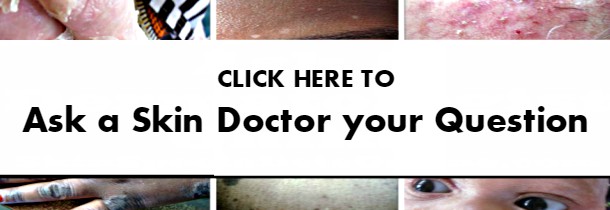
Dear Doctor
I woke up to these bumps on my face. I’m not sure if I’m having an allergic reaction or something bit me.
Dear Patient
This condition is known as urticaria.
Urticaria Causes
The causes of urticaria include:
1. Coming in contact with allergens (substances which cause the allergic reaction) like latex from gloves and nickel from jewelry.
2. Inhaling allergens like molds.
3. Ingesting or eating allergens like shellfish, eggs, milk, soybeans and peanuts.
4. Taking medications by mouth like penicillin, aspirin, herbal preparations and non-steroidal anti-inflammatory drugs (NSAIDS) like ibuprofen.
5. Being injected with allergens like radio-contrast dye which is given before some x-rays. Other iatrogenic (caused by a doctor) urticaria causes include receiving blood transfusions, egg and gelatin based vaccines.
6. Stings from honeybees, hornets, wasps and fire ants can also cause urtircaria.
All these causes of urticaria cause skin lesions which look the same. It is therefore hard to tell by just looking at the skin whether the urticaria developed as a result of reaction to something you ate or something that stung you.
However, many of these insects that cause urticarial reactions have very painful stings and I doubt anyone can sleep through a bee sting. The intense pain would wake them up immediately and they would know they have been stung even if they do not see what has stung them.
Treatment of Urticaria
The treatment of urticaria includes:
Taking Antihistamines
Antihistamines which are taken by mouth like the older generation H1 receptor blockers diphenhydramine (Benadryl) and hydroxyzine (Atarax, Vistaril) are effective in reliving the skin lesions and itch of acute urticaria. Persons should not drive for at least 6 hours after receiving these sedating medications. They are however very beneficial if the itch disturbs sleep.
Newer generation non-sedating H1 receptor blockers like fexofenadine (Allegra), loratadine (Claritin) as well as the less sedating cetirizine (Zyrtec) can be used to treat both acute urticaria and chronic urticaria. They have the advantage of being minimally sedating though they do not work as rapidly as the older generation H1 receptor blockers.
Taking Glucocorticoids
Glucocorticoids like prednisone can be taken since they prevent histamine release by stabilizing the mast cell membranes. Their anti-inflammatory effects also reduce the inflammatory effects of histamine.
Epinephrine
Epinephrine or adrenaline is usually used if there are associated symptoms of angioedema and anaphylaxis like voice changes or hoarseness of voice, stridor or wheezing, light headedness or fainting episodes.
Identifying and Avoiding the Cause
Identifying and avoiding the underlying cause is very important since continuous exposure to it will result in recurrent episodes of urticaria.


